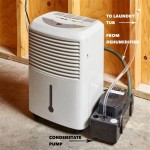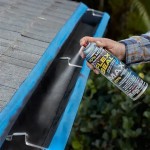Water in Basement: Causes, Prevention, and Solutions
Finding water in your basement can be a distressing experience. Not only is it an inconvenience, but it can also cause costly damage if left untreated. However, with the right knowledge and a proactive approach, you can effectively address water in your basement and prevent future problems.
Causes of Water in Basement
Several factors can contribute to water entering your basement, including:
- Foundation cracks: Cracks in the foundation allow water to seep into the basement, especially during heavy rainfall or flooding.
- Basement windows: If basement windows are not properly sealed, water can leak through the gaps.
- Roof drainage issues: Clogged gutters, downspouts, or improper grading around the home can cause water to pool near the foundation and seep into the basement.
- Plumbing leaks: Leaky pipes or fixtures can contribute to water in the basement.
- Groundwater: In some areas, high groundwater levels can push water into the basement.
Prevention Tips
To prevent water from entering your basement, consider implementing the following measures:
- Inspect and seal foundation: Regularly inspect your foundation for cracks and seal them promptly to prevent water seepage.
- Maintain gutters and downspouts: Keep gutters clean and ensure downspouts are directing water away from your home.
- Grade your property: The ground around your home should slope away from the foundation to prevent water accumulation.
- Install a sump pump: A sump pump can remove excess water from your basement during heavy rainfall or flooding.
- Waterproof your basement: Applying a waterproofing membrane to your basement walls and floors can prevent water penetration.
Solutions for Water in Basement
If water has already entered your basement, prompt action is crucial:
- Remove standing water: Use a wet/dry vacuum or pump to remove standing water from your basement.
- Identify and address the source: Determine where the water is coming from and take appropriate measures to stop the leak or seepage.
- Dry out your basement: Open windows and doors to ventilate the basement and encourage evaporation. You can also use fans or dehumidifiers to accelerate the drying process.
- Disinfect your basement: To prevent mold growth, use a bleach solution to disinfect your basement after it has dried.
- Inspect and repair: Once your basement is dry, inspect for any damage caused by the water and make necessary repairs.
Professional Help
In some cases, addressing water in your basement may require professional assistance. Contact a qualified contractor or waterproofing specialist if:
- The water source is difficult to identify.
- The damage caused by the water is extensive.
- You have tried DIY solutions but have not been able to resolve the issue.
- You are concerned about the potential health hazards associated with water damage.
Conclusion
Water in your basement can be a serious problem, but it can be managed and prevented with the right knowledge and proactive measures. By understanding the causes of water in your basement and implementing effective prevention and solutions, you can protect your home from costly damage and ensure a dry and healthy living environment.

Water In The Basement What To Do Causes Prevention

Tips For Handling Water In Your Basement Zoeller At Home

Water In The Basement What To Do Causes Prevention

Water In Your Basement What Caused It To Do And How Stop The Sump Pump Co

Water In Your Basement What To Do And Who Call Forbes Home

Wet Basement Diy Repair Guide Radonseal

There S Water In The Basement Now What Grand Little Place

Help My Basement Leaks When It Rains News And Events For Systems Inc

Here S How Much Damage Water Can Do To A Basement Modernistic

12 Tips For Fixing A Leaky Basement Family Handyman
See Also








